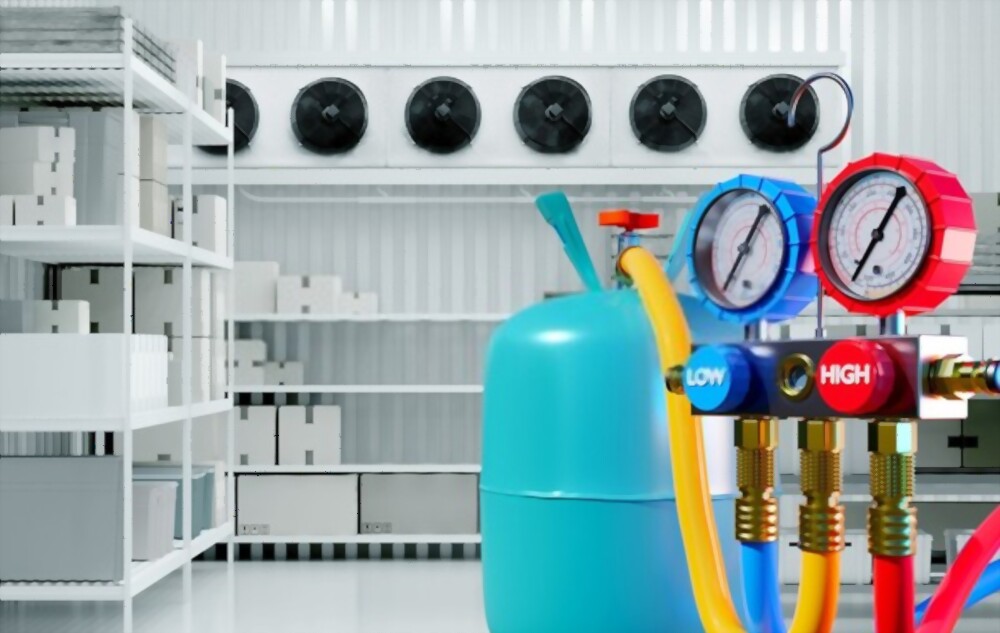In today’s world, the need for sustainable and eco-friendly solutions is more significant than ever, especially when it comes to refrigeration and air conditioning. One such solution gaining prominence is the use of R290 refrigerant. R290, also known as propane, is a hydrocarbon-based refrigerant that offers a promising alternative to traditional synthetic refrigerants like R134a and R410a. In this article, we will explore the features, benefits, and challenges associated with R290 refrigerant and its role in achieving a more sustainable cooling industry.
Understanding R290 Refrigerant
R290 is a natural refrigerant, classified as a hydrocarbon, primarily composed of two elements: hydrogen and carbon. Unlike synthetic refrigerants, which contain chlorine or fluorine compounds (known as CFCs, HCFCs, and HFCs), R290 is chlorine-free, making it an environmentally friendly choice. It has a low Global Warming Potential (GWP) of just 3 and zero Ozone Depletion Potential (ODP), which positions it as an excellent candidate for reducing greenhouse gas emissions and minimizing harm to the ozone layer.
Benefits of R290 Refrigerant
- Low Environmental Impact: R290 refrigerant is a climate-friendly option that contributes to reducing global warming. Its low GWP makes it an ideal choice for mitigating the environmental impact of cooling systems.
- Energy Efficiency: R290 has excellent thermodynamic properties, which means it can provide efficient cooling with minimal energy consumption. This can lead to reduced energy bills and lower carbon emissions.
- Safety: While propane is flammable, modern refrigeration systems using R290 are designed with numerous safety features to mitigate any risks. These systems are subjected to rigorous safety standards and are considered safe for residential and commercial use.
- Compliance with Regulations: Many countries and regions are tightening regulations on synthetic refrigerants with high GWP values. R290 is already compliant with these regulations, making it a future-proof choice for cooling applications.
- Reduced Leak Impact: In the event of a refrigerant leak, R290 has a shorter atmospheric lifetime compared to HFCs, meaning it has a lower impact on global warming even when released into the atmosphere.
Challenges and Considerations
While R290 offers numerous advantages, there are some challenges and considerations to keep in mind:
- Flammability: Propane is flammable, which requires special precautions in system design, installation, and maintenance to prevent accidents. However, with proper safety measures, the risk is minimized.
- Training and Certification: Technicians working with R290-based systems need specific training and certification to ensure they handle the refrigerant safely.
- Availability and Cost: R290 may not be as readily available as synthetic refrigerants, and its price can vary depending on local supply and demand factors.
- System Compatibility: Existing cooling systems may need modifications to accommodate R290, which could add to the initial cost of adoption.
Applications of R290 Refrigerant
R290 is being used in a wide range of applications, including:
- Domestic Refrigeration: Many manufacturers are shifting to R290 in household refrigerators and freezers to meet environmental regulations and reduce energy consumption.
- Commercial Refrigeration: Supermarkets, convenience stores, and restaurants are increasingly adopting R290 in commercial refrigeration systems.
- Air Conditioning: R290-based air conditioning systems are becoming popular for both residential and commercial use due to their energy efficiency and low environmental impact.
- Heat Pumps: R290 is used in heat pump systems for both heating and cooling applications.
Conclusion
As the world grapples with the challenges of climate change and environmental sustainability, R290 refrigerant emerges as a promising solution for the cooling industry. Its low GWP, energy efficiency, and environmentally friendly properties make it a viable alternative to traditional synthetic refrigerants. While safety and system modifications are essential considerations, the benefits of R290 far outweigh the challenges, positioning it as a key player in the transition towards a greener and more sustainable future for cooling technologies.

